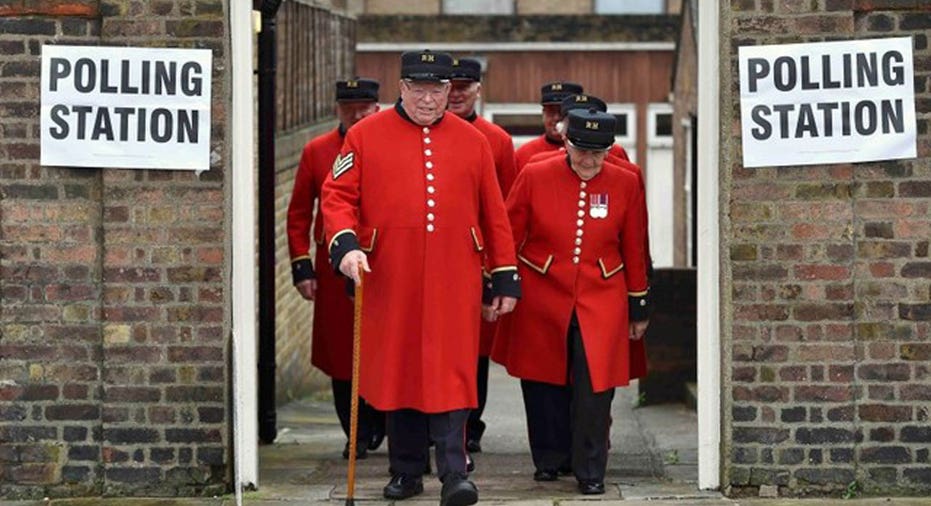Keep Calm and Carry On: Life After Brexit

On Friday, I will say farewell to the bloated U.K. CEO making cringing statements about “the duty of loyalty to Europe” – packaging greedy “self-interest “as “perspective.” I will say farewell to the sensationalism of it all and with it the feeling your present is somehow being thwarted while your future is regulated by some obscure, bed-ridden aunt. I will say farewell to the exhausted acronyms named “Bremain” and “Brexit”. Like all media truncations – including “Grexit”, “Italeave”, and “Portugo” I never knew what you truly meant, it was confusing, and thus hopefully your abbreviations are forever lost to history.
I am and always have been a fierce anti-federalist; I don’t need or want even the most well-meant, over-civilized person imposing their view of life on me. All that said, I’m 100% in the “Bremain” camp simply because the EU has been a formidable force in delivering an unprecedented 70 years of peace and prosperity to all of Europe. Bottom line: It would be good business for the UK to stay and ill-advised business to leave.
The EU, for all of its misgivings, is like any government or quasi-government edifice and it’s crucial not to misunderstand its objective, or you will be surprised by its action. What should be expected of the EU is not deceit but unconscious interference, an infallible reflex for doing the wrong thing at the wrong time. Like any man made structure, the EU isn’t inherently malicious – it’s just not teachable.
Sturdily reliable bodies including the IMF, OECD, and Bank of England have all issued cautions of an abrupt U.K. recession in the event of Brexit. That is indeed possible but it must be said that all of these entities have been extremely poor at forecasting anything! If they are right – and they sure could be – it would be a first!
Layer on top of that the eurozone is a monetary union without a political, fiscal, or full banking union. The U.K. has its own treasury, its own currency, and its own monetary policy making board. Imagine the complexity of the U.S. Federal Reserve being coerced by Canada or Mexico. Brexit: It’s complicated!
Anyway, at 10:00pm (GMT) on Thursday June 23 the UK polling stations will officially close. Votes cast will be counted and declared individually in 382 ‘counting venues’. So, all going according to plan, we should know the consensus outcome approximately the same time that markets open in London.
The crusade to leave this 43-year membership has been simmering for years, as there is growing resentment towards the U.K.’s estimated £13 billion per year payment into the EU budget – all without any sort of democratic accounting. The temperature of the argument has been raised several degrees by the migration crisis.
Bottom Line: Although I do believe the risks and consequences of Brexit are vastly inflated I am very concerned that this referendum is happening at a time when the global economy is exceptionally fragile – ranging anywhere from being very soft to being barely stable. Although a vote to “leave” will not mean immediate “cut-and-run” from the EU, it will indeed mean uncertainty and that could be just enough to knock over our fledgling global recovery.
Life after June 23: Short-term markets will not provide much compassion – the most likely outcome is a much weaker British Pound, fear, and hence slower growth post a leave vote. Save your confetti - especially if the remain vote is close - as the globe will be mired in heightened political risks and uncertainty in the near-term. This could wind up being a case where consensus is right; one where the British pound will weaken no matter what the outcome happens to be.
Immediate term reactions are typically wrong providing multiple knee-jerk reactions and therefore potential trading opportunities. Below is a list of how to think rightly no matter what the referendum outcome.
FTSE 100 Equity Index: Although I am far from bullish on equities – particularly U.K. equities – I would be tempted to” bottom fish” if the FTSE 100 index drops more than 2.5% only because more than two-thirds of its earnings are derived outside of the U.K.
Copper: through a myopic, historical lens, copper has shown to be the most adversely affected to moves in the U.S. dollar and/or economic cycles. July copper closed yesterday at $2.1295 a pound, its year-to-date high was $2.3290. In a “stay” vote, the U.S. dollar should ratchet higher and may cause copper to fall without any regard to its fundamentals. I would recommend buying the metal on any initial, significant knee-jerk down move.
Gold: On January 4, August gold futures hit a year-to-date low of $1065.70 a troy ounce in concert with my FBN column “Warning about Tomorrow: A 2016 Forecast” where I conjectured that the U.S. dollar would fall and gold would climb. Mid-year and pre-Brexit I’m currently afraid gold has overshot; it’s gone too far too fast. My best thinking would be to fade (i.e. buy if it drops significantly and sell if it rallies significantly) the first move and view your trade as a trade – not an investment.
I’m firmly convicted that the referendum could cause a wave of short-term market aberrations and volatility. However, the difficulty is predicting the market’s magnitude and duration. Harder still is estimating how much a “Bremain” or “Brexit” outcome is now inherent in an assets current trading price.
No matter what, eventually, markets will decide the problem should be contained to its locality. From June 23 on out the consensus will shift their sights on global growth, equity valuations, and earnings.



















